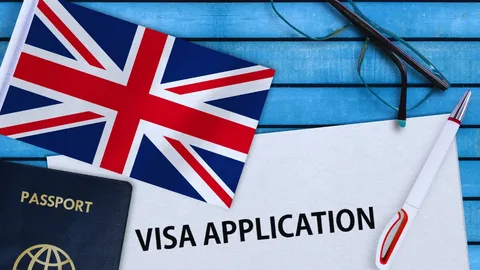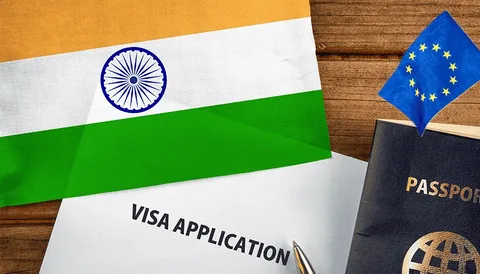If you’re planning to study in the UK or are already on a student visa, you might want to pay close attention, big changes are coming. From January 2027, the UK government will shorten the Graduate visa stay for international students from two years to 18 months, part of a wider move to tighten migration rules and refocus the post-study route toward skilled employment.
The decision has sparked debate among universities, employers, and international students. For many, the UK’s two-year post-study work period was a key attraction, offering graduates the breathing room to gain experience, secure skilled work, and build a life after graduation. But now, with the window cut short, the pressure to find employment quickly will be higher than ever.
Here’s a detailed look at what’s changing, why it’s happening, and how it will affect both current and future international students.

What’s Changing in the Graduate Visa
Under the new policy, anyone applying for the Graduate visa on or after January 1, 2027, will be allowed to stay in the UK for up to 18 months after completing their studies.
If you submit your application before December 31, 2026, you’ll still enjoy the current two-year stay. But after that date, the rules change for everyone.
PhD graduates, however, will continue to receive three years of post-study stay, no change there.
There’s also no extension option for the Graduate visa. Once your 18 months are up, you’ll have to either:
- Leave the UK, or
- Switch to another visa type, such as the Skilled Worker visa, Innovator Founder visa, or Global Talent visa, if you meet the requirements.
That means the post-study phase will become less about “settling in” and more about transitioning into skilled employment quickly.
Why the UK is Tightening the Rules
According to the Home Office, the policy change is meant to ensure that the Graduate visa meets its original purpose; helping qualified international students move into skilled roles rather than remaining in the UK without graduate-level employment.
Recent data reportedly showed that a significant number of foreign graduates weren’t securing skilled jobs during their post-study period. Some were working in low-paid, non-graduate roles or were unemployed but staying in the country under the visa’s allowance.
The government’s message is clear: the Graduate route should not become a “backdoor migration path” but a bridge to meaningful, skilled work.
The change also fits into the UK’s broader effort to reduce overall migration numbers, following recent restrictions on student dependents and increased scrutiny of international enrollments.
Higher Financial Requirements for Student Visa Applicants
That’s not the only change international students will face. From the 2025–2026 academic year, the UK will also raise the minimum proof of funds required to obtain a student visa.
Here’s the updated financial requirement:
- If studying in London: You must show £1,483 per month for up to nine months.
- If studying outside London: You must show £1,136 per month for up to nine months.
These funds must be held in your account for at least 28 consecutive days, and the final day of that 28-day period must fall within 31 days of your visa application date.
In practice, this means students will now need to demonstrate between £10,000 and £13,000 (depending on location) — on top of tuition fees.
This higher threshold is intended to ensure that students can genuinely support themselves in the UK, where living costs have risen sharply in recent years. But it also means that the financial barrier to entry just got higher, especially for students from countries where currency exchange rates make saving in pounds particularly tough.
Studying in the UK Will Become More Expensive
In addition to the increased proof-of-funds requirement, the UK has also introduced a new “levy” on university income from international students. This levy, which universities must pay to the government, will likely be passed down through higher tuition fees.
For the 2025/2026 academic year, tuition fees for undergraduates have already gone up by 3.1%, rising from £9,250 to £9,535.
When combined with inflation, rent increases, and general living expenses, this makes studying in the UK more expensive than ever. For many students, particularly from developing countries, this could mean rethinking their budget or considering alternative study destinations such as Canada, Germany, or the Netherlands.
Stricter English Language Rules
The UK government is also planning to tighten English language requirements for those applying for study, work, or settlement visas.
While the exact details haven’t been finalised, officials say the goal is to “ensure students have the English language proficiency needed to succeed in UK education and employment.”
This likely means that the minimum IELTS or equivalent test scores will be raised, affecting both student visa applicants and those applying for post-study work or permanent residence later on.
For non-native English speakers, especially those from countries where English is not the primary medium of instruction, this change means more preparation and potentially more expenses for testing and language courses.
Stricter Entry Standards and Changing Student Trends
This new wave of visa reforms follows a string of immigration changes introduced over the past two years. In January 2024, the UK banned most international students from bringing dependents, except for those enrolled in postgraduate research programmes.
That move initially led to a sharp drop in international applications. But interestingly, recent data from the Home Office shows that by the first half of 2025, total study visa applications had rebounded by 18% compared to the same period in 2024.
This rebound suggests that despite tougher rules and rising costs, the UK’s global education appeal remains strong. The country continues to attract international students seeking high-quality education, reputable universities, and exposure to one of the world’s most dynamic job markets.
However, with the 2027 rule changes, students may now approach UK study more strategically — focusing on employability, work readiness, and long-term career planning rather than purely academic prestige.
What This Means for Future International Students
The reduced post-study stay will have several ripple effects:
- Faster Career Planning:
Students will need to start job-hunting earlier, even before they finish their degrees. Securing a skilled role within 18 months will now be critical for those hoping to remain in the UK. - Increased Pressure on Employers:
Employers who value international talent may face more visa-related paperwork as graduates switch to the Skilled Worker route sooner than before. - Higher Financial Hurdles:
Between higher proof-of-funds, rising tuition fees, and stricter visa rules, only students with solid financial backing will likely pursue UK study. - A Shift in Destination Choices:
The UK’s stricter stance might push some international students to look toward Canada, Australia, or EU countries that offer longer post-study stays and more flexible work options. - PhD Students Retain Advantage:
Since PhD graduates still get three years of post-study stay, the appeal of research-based programmes may increase among international applicants.
How to Strategically Prepare for the 2027 Rules
If you’re planning to study in the UK in or after 2026, here are some practical steps to stay ahead of these changes:
- Apply Early:
If possible, complete your studies and apply for the Graduate visa before December 31, 2026, to enjoy the full two-year post-study period. - Choose Employability-Focused Courses:
Opt for degrees that lead to high-demand careers in the UK such as data science, engineering, healthcare, cybersecurity, and AI — which make it easier to transition into the Skilled Worker visa later. - Build Experience During Studies:
Use internships, part-time work, and research projects to strengthen your employability before graduation. Employers are more likely to sponsor students who have UK work experience. - Improve Your English Proficiency:
Given the expected tightening of English requirements, aim to exceed the minimum IELTS or TOEFL score. A stronger command of English also improves your professional competitiveness. - Prepare Financially:
Start saving early to meet the new proof-of-funds requirements and prepare for potential fee hikes. Financial readiness is now a crucial factor in visa approval. - Stay Updated on Immigration News:
UK visa rules change frequently. Follow official updates or reliable education news sources to avoid surprises during your application process.
The UK’s decision to reduce the Graduate visa duration from two years to 18 months marks a significant policy shift that will reshape the international student landscape. While the move aims to align the visa’s purpose with skilled employment, it also tightens the window for post-study opportunities and raises the overall cost of studying in Britain.
Despite these challenges, the UK remains one of the most desirable destinations for higher education, offering academic excellence and global exposure. But from 2027 onward, success will depend on how well students adapt to the new system.
If you’re eyeing the UK as your next study destination, start preparing now. The future belongs to those who plan ahead and when January 2027 comes around, preparation might just be your biggest advantage.







